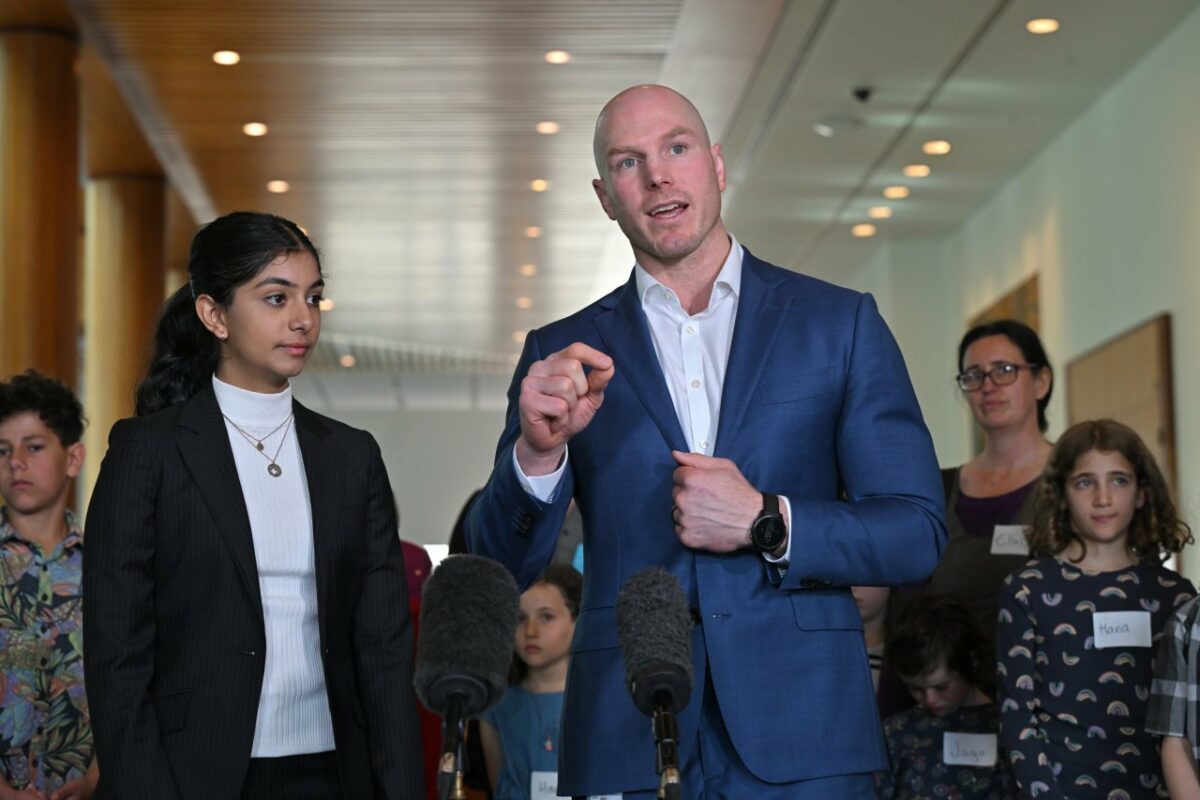Young activists are driving action on climate change in the Australian Parliament.
Leading the push is ANU student Anjali Sharma, who, in collaboration with independent Senator David Pocock, is seeking to pass into legislation the Climate Change Amendment (Duty of Care and Intergenerational Equity) Bill. Their goal is to compel the Federal Government to consider young people’s health and wellbeing when approving suggestions and proposals which are potentially harmful to the environment.
The campaign began in 2022 when Sharma, along with seven other students, took then-Minister for the Environment, Sussan Ley, to court. The group argued she breached a duty of care owed to young people by failing to protect them from the dangers of climate change.
Though initially successful, the case was overturned. Federal Court Chief Justice James Allsop emphasised that the ruling was not because it is unreasonable to assume a duty of care exists, but that it is an issue of Federal policy.
Despite the ruling, Sharma and her fellow activists designed the Climate Duty of Care Bill in cooperation with environmental, legal, and policy experts. Senator Pocock has become the Bill’s main proponent in Parliament.
Fuelling the activists’ mission is a recognition that “young people are the ones expected to [live] in a world…characterised by climate disaster,” Sharma told Woroni.
If passed, the Bill would compel the government to determine whether proposed fossil fuel projects would harm the health and wellbeing of young people. If scientific evidence suggests that a project is expected to emit over 100,000 tonnes of carbon dioxide over its lifetime, a duty of care consideration would be triggered, obligating the government to examine the project’s implications for young Australians.
If such a risk is determined, the project would not gain Federal approval.
The proposed legislation has gained unprecedented support. As part of the public inquiry into the Bill, nearly 400 submissions have been made to the Senate committee reviewing it. In comparison, most bills coming before the Senate Environment Communications Committee are accompanied by 20-30 submissions.
Alongside the Bill is a public petition which has garnered over 11,000 signatures. It calls on Members of Parliament to approve the Bill, and “protect the people and places we love.”
Sharma is particularly proud of the broad range of signatories, with supporters ranging from “big corporations like Ben and Jerry’s…to parents and grandparents.”
“The level of support and engagement is beyond belief,” she says.
Alongside Senator Pocock, 28 other Federal politicians have signed a pledge stating, “I support a duty of care.”. Though taking this pledge does not equate to formal support for the Duty of Care Bill, it is notable that 10 of the signatories are members of the current government – one being an assistant minister.
Those behind the Bill expect young people to benefit considerably if it is passed. This is largely because, according to Sharma, there is “a very clear policy gap”, with no existing legislation requiring policy makers or bureaucrats to consider young people in these decision-making processes.
Senator Pocock told Woroni, “[This] Bill addresses this gap in legislation.”
“The legislation will have a tangible impact on our lives by making our health and wellbeing a paramount consideration,” Sharma added.
Senator Pocock is optimistic that, if passed, young people will benefit from governments which are empowered to serve their best interests.
“Young people can expect to be considered when decisions are made which impact our climate”, the Senator told Woroni.
“For the first time…[the Minister for the Environment] would be able to say ‘no’ because it will harm…young people and future generations.”
We acknowledge the Ngunnawal and Ngambri people, who are the Traditional Custodians of the land on which Woroni, Woroni Radio and Woroni TV are created, edited, published, printed and distributed. We pay our respects to Elders past and present. We acknowledge that the name Woroni was taken from the Wadi Wadi Nation without permission, and we are striving to do better for future reconciliation.
